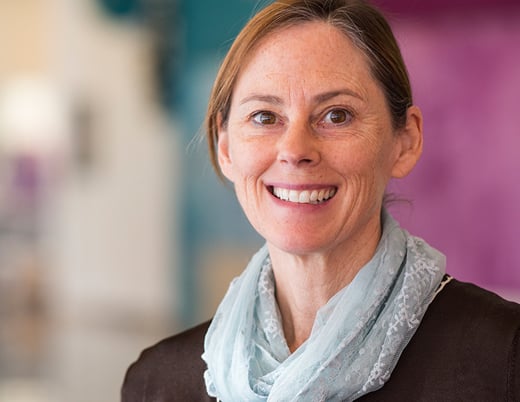The intestines make up the largest immune organ in the body, explains Edwin de Zoeten, MD, PhD, pediatric gastroenterologist at Children's Hospital Colorado. When it functions properly, the intestines recognize harmful bacteria and attack them appropriately, returning to a calm state after the bad bacteria are wiped out.
For patients who have inflammatory bowel disease (IBD), which includes Crohn's disease and ulcerative colitis, though, the intestines can be overzealous against harmful bacteria, and end up attacking good bacteria, throwing the microbiome out of balance and perpetuating inflammation of the intestines.
Dr. de Zoeten's goal is to figure out how to help patients with IBD regain balance, or homeostasis, through his research. Currently, most IBD treatments try to do that through medications that suppress the inflammation, but Dr. de Zoeten is dissatisfied with their side effects.
"What excited me was seeing the success of nutritional therapy and how it impacted patients' lives."
—Dr. Edwin de Zoeten
Nutritional therapy treatment for IBD
Instead, he has come to believe in nutritional therapy, a standard of care in Europe and Britain. But because it can be an uncomfortable treatment for some patients, Dr. de Zoeten says, only select other pediatric hospitals in the U.S. use it regularly for kids with Crohn's disease.
Nutritional therapy requires a patient to receive more than 90% of their food through a soft nasogastric tube for three months or longer. The tube can initially be uncomfortable to place and the patient has to refrain from eating most foods during that time. Culturally and behaviorally, that can be a huge challenge for kids and families.
But it's hard to ignore the results of this therapy: Up to 80% of Dr. de Zoeten's patients who undergo nutritional therapy as soon as they're diagnosed with IBD go into remission after three months.
Unprecedented success rate among IBD therapies
Though patients don't always stay in remission, it's nevertheless an unprecedented success rate among IBD therapies and reduces the need for high doses of medicines that may have unwanted side effects.
"Overall, much of our work goes into trying to convince the body to return to homeostasis, and nutritional therapies will likely play a major role in the future treatment of IBD and regaining this balance," Dr. de Zoeten says.
Learn more about the Digestive Health Institute at Children's Colorado.
Featured Researchers

Edwin de Zoeten, MD, PhD
Pediatric gastroenterologist
Children's Hospital Colorado





 720-777-0123
720-777-0123










